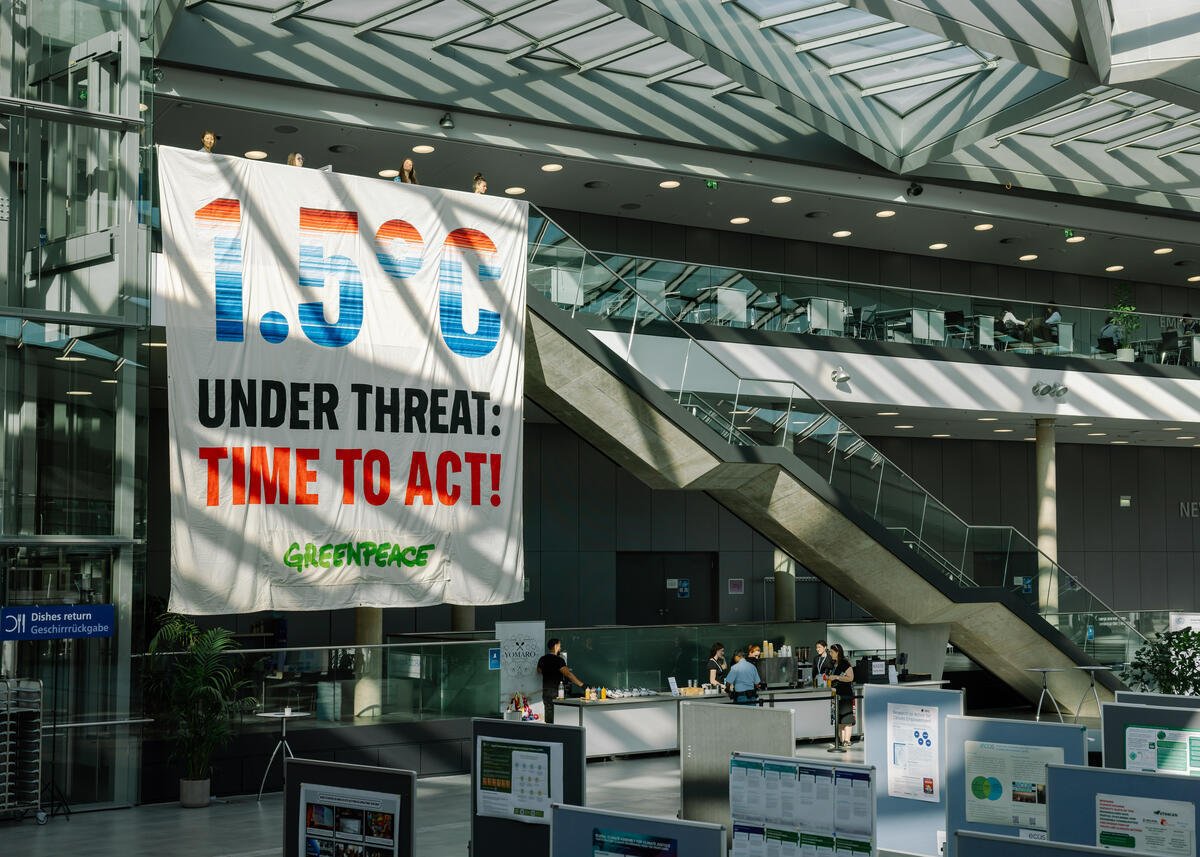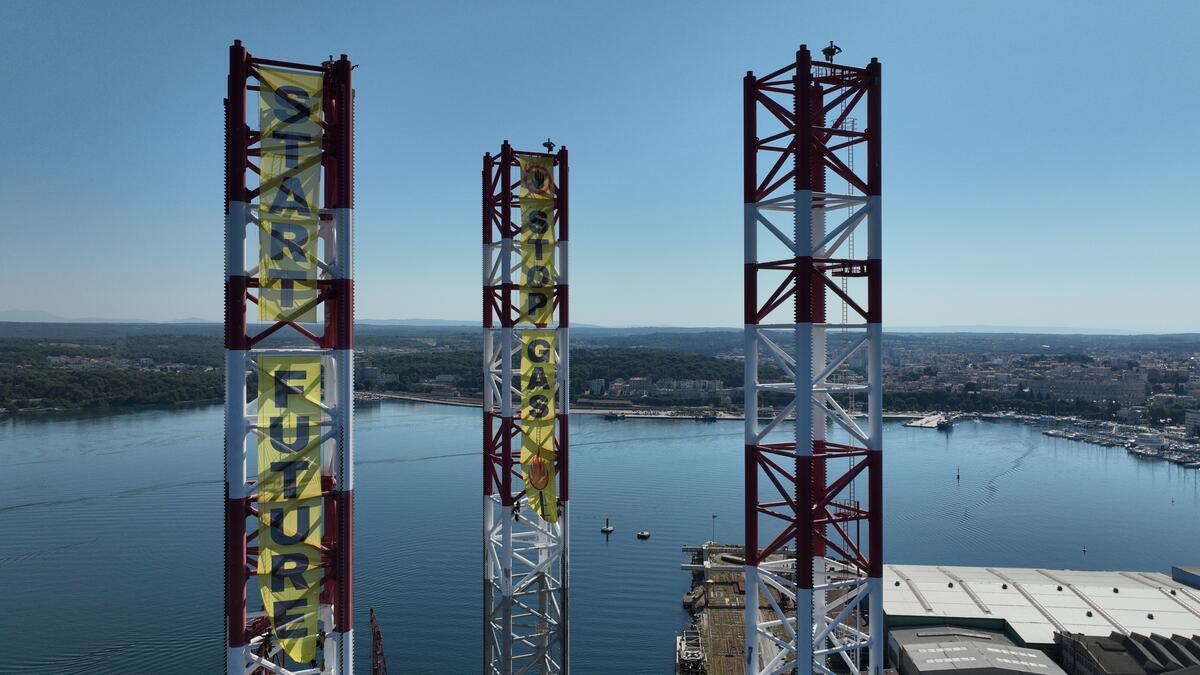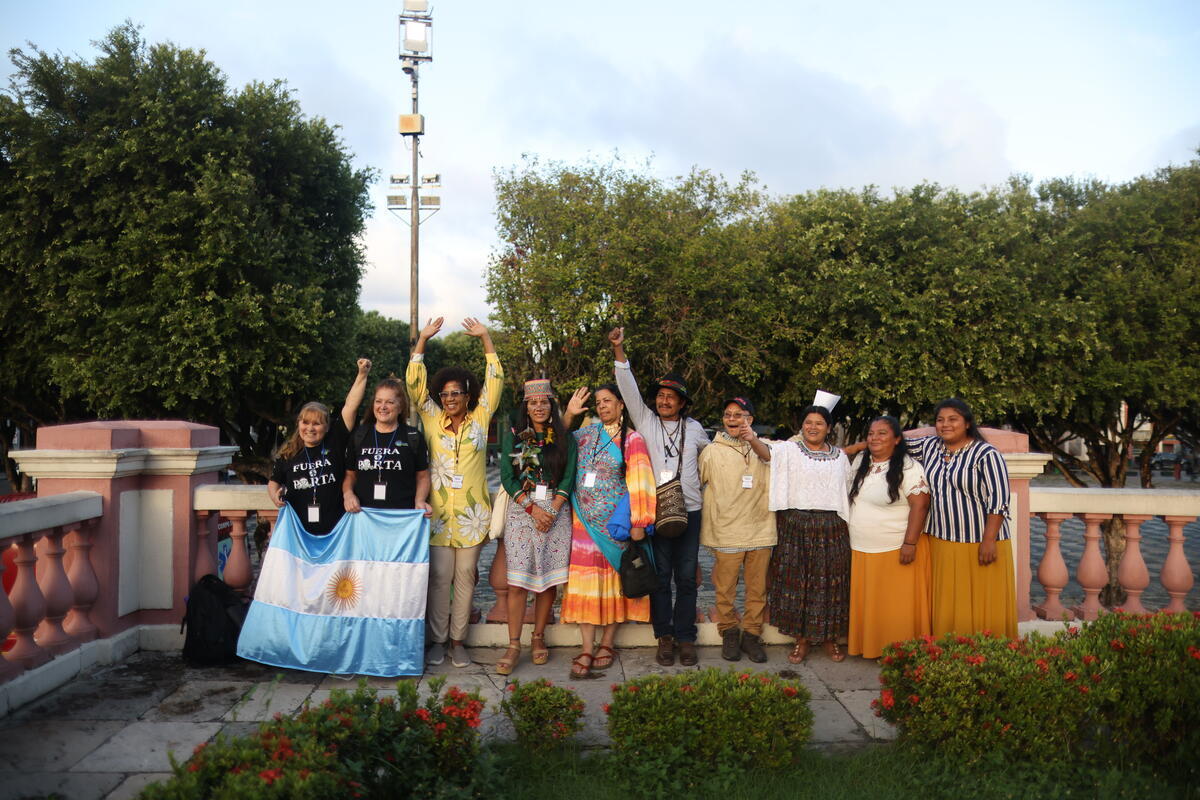What’s happening
Earlier this month, activists from Greenpeace Spain installed a 12 metre long train model in the Barcelona-El Prat airport to protest the impact of the airline sector and the planned expansion of the airport.
The expansion of the Barcelona-El Prat airport would cause tremendous damage to precious wetlands and cost 1.7 million euros. Businesses and representatives promoting this project would like people to believe that opposing the expansion will hurt the city and its inhabitants. It is not true. No city can prosper based exclusively on a “low cost” tourism model that negatively impacts the population with more expensive rents while devouring public resources.
This train model was designed to highlight the shocking lack of rail connectivity among European countries and across the continent. It will travel across Europe in the coming months.
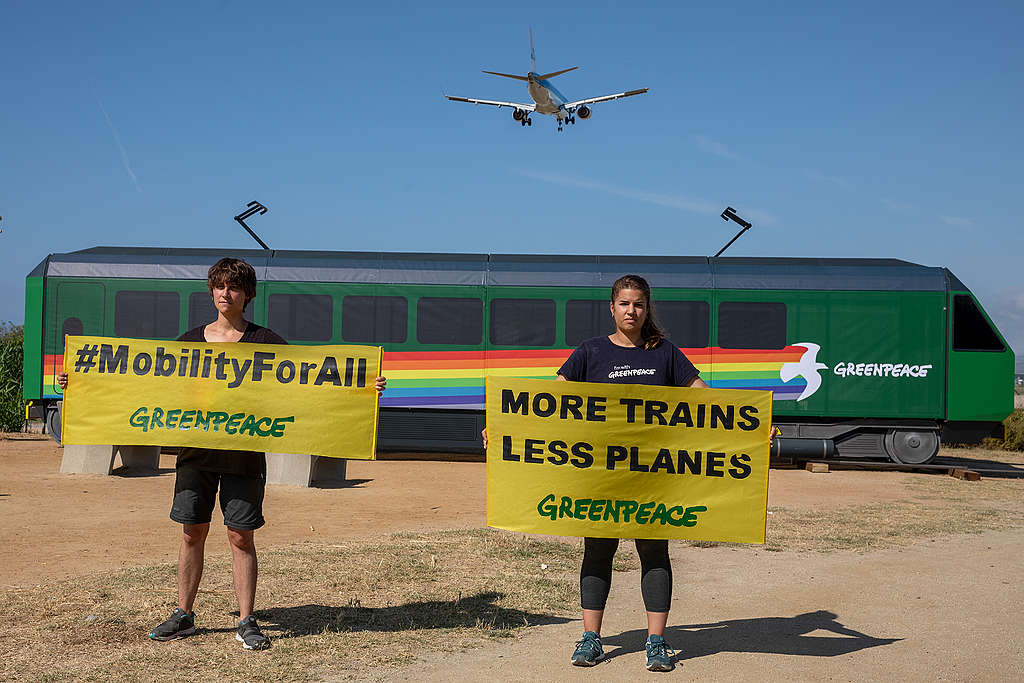
Why it matters
With the arrival of summer in Europe, the easing of restrictions means a return to travel throughout the continent. However, of the people who are lucky enough to be able to travel, many folks have no choice but to resort to the car or plane for their vacations due to the lack of trains. We urgently need European governments to invest in a geographically robust and accessible railway system for everyone everywhere, not just those routes with the highest demand.
In Eastern and Northern Europe, for example, distances are big and alternatives still need to be designed and delivered. If Europe truly wants to be united, train travel time between places like Bucharest (Romania) and Sofia (Bulgaria), the capitals of the two largest countries in Eastern Europe, should be 5 hours, not 11 hours with multiple transfers.
Investing in trains is a key to fighting the climate emergency while connecting Europeans and other travelers with their cities and countries in a sustainable way. But diminishing connections has forced people to use more polluting means of transport.
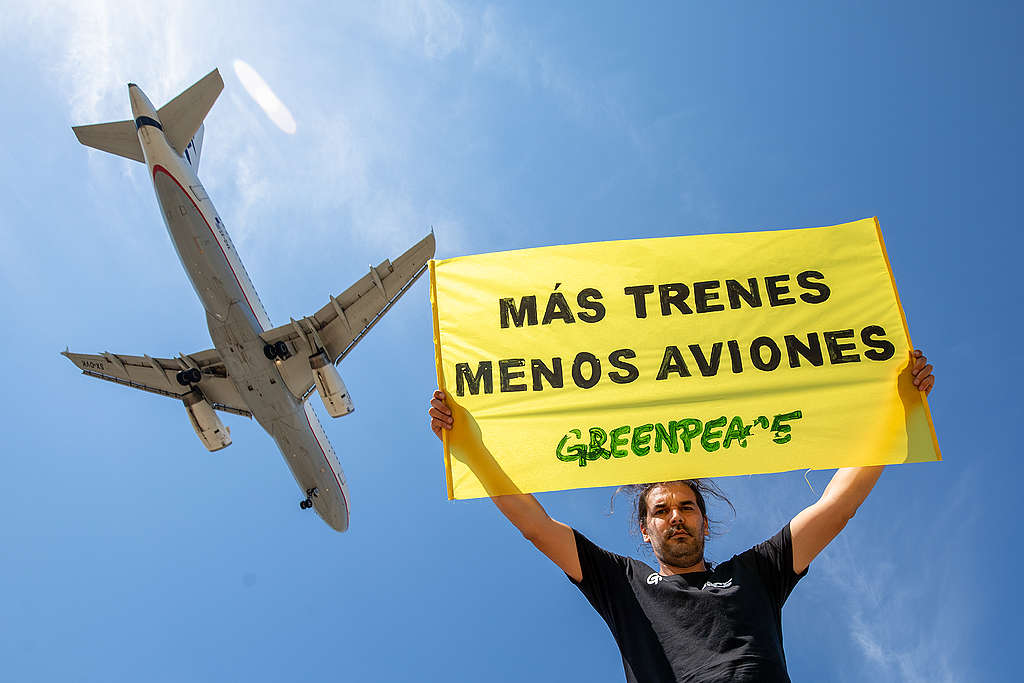
What needs to happen
The European Commission has declared 2021 the “European Year of Rail”, highlighting the essential role of the train in fighting the climate crisis. Traveling by plane pollutes up to 20 times more than travelling by train. Greenpeace demands that EU institutions and national governments be consistent with their climate objectives and promote a system whereby the train — already climate-friendly, safe — is an affordable alternative to short-haul flights and the car.
With that in mind, Greenpeace Spain produced a video to encourage citizens to sign a petition addressed to European Transport Ministers with five proposals that would allow us to travel better in the future:
- Create at least 30 new day and night connections between European countries by 2025
- Improve the compatibility of trains between countries so that journeys between different European territories are possible
- Make the train easier and more affordable by eliminating subsidies to airlines, e.g. introducing a kerosene tax. End short-haul flights when there is a competitive train alternative in terms of time and price
- Ensure train operators have compatible sales systems so that buying a train ticket is as easy as buying a plane ticket
- Facilitate access to trains for all people, including those who travel with their bicycle or pet.
Mobility For All is working in collaboration with allies to promote the benefits of alternative mobility for improved city life for all city dwellers, whatever their background or socioeconomic status.


